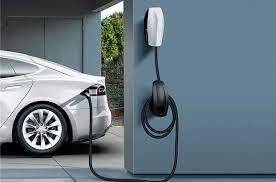Electric Vehicles popularly known as EV Vehicles are gaining popularity by being a reliable and effective source of seamless charging process. As there are numerous choices available for the manufacturer of ev chargers, it’s essential to take a few things into account to make sure of the finest EV charger.
We’ll analyse significant information that will aid in your decision-making in this article.
- Determine Your Charging Needs:
Before purchasing an EV charger, assess your charging requirements. Consider factors like your vehicle’s battery size, charging speed preferences, and available electrical capacity at your location.
- Warranty and Customer Support:
Check the warranty offered by the manufacturer for the EV charger. Additionally, research customer reviews and consider the reputation of the manufacturer’s customer support. Reliable customer support can assist you in case of any issues or concerns with the charger.
- Expandability and Future-Proofing:
Consider whether the EV charger has the potential for future expandability. Some chargers may offer the ability to upgrade or add features as new technologies and standards emerge. Future-proofing your charger can save you from needing to replace it entirely as your EV charging needs to evolve.
- Safety Features:
Ensure that the EV charger you choose has essential safety features like overcurrent protection, overvoltage protection, and ground fault protection. These safety mechanisms protect both your vehicle and the charging infrastructure from potential electrical faults or surges.
- Networking and Connectivity:
Some EV chargers offer networking and connectivity features that allow you to integrate them with smart home systems or connect to charging networks. These features can provide added convenience, remote access, and the ability to monitor charging sessions and energy usage.
- Installation Requirements:
Consider the installation requirements of the EV charger. Some chargers may require professional installation and electrical upgrades, while others can be easily installed by the user. Assess whether you have the necessary electrical infrastructure and wiring in place or if additional work is needed for installation.
- Additional Accessories:
Check if the EV charger comes with any additional accessories or cables, such as wall mounts, cable organisers, or adapters. These accessories can enhance the usability and convenience of the charger and make the charging process more organised.
- Certification and Standards Compliance:
Ensure that the EV charger complies with industry standards and safety certifications, such as SAE J1772 for Level 1 and Level 2 chargers or CHAdeMO for DC fast charging. Compliance with these standards ensures compatibility, safety, and interoperability with various electric vehicles.
- Consider the Future:
Lastly, consider your future needs and the evolving landscape of EV charging. Look for an EV charger that allows for upgradability, software updates, and compatibility with emerging technologies. Being prepared for future advancements in EV charging can prolong the usability and relevance of your charger.
- Charging Cable Length:
Check the length of the charging cable that comes with the EV charger. Ensure that it is long enough to comfortably reach your vehicle’s charging port from the installation location of the charger. Opting for a longer cable provides flexibility in parking and allows for easier charging in various scenarios.
- Load Management and Power Sharing:
If you have multiple EVs or anticipate future electric vehicle additions, consider an EV charger that supports load management or power-sharing capabilities. This feature enables you to distribute available power between multiple chargers or prioritise charging based on specific requirements, optimising charging efficiency.
- Scalability:
If you plan to expand your charging infrastructure or have the potential for increased charging demands in the future, choose an EV charger that offers scalability. Look for chargers that allow for the addition of multiple charging units or support networked charging systems to accommodate future growth.
- Data and Usage Reporting:
Some EV chargers provide data and usage reporting features, allowing you to track and analyse charging patterns, energy consumption, and costs. This information can help you make informed decisions regarding energy management, optimise charging schedules, and monitor the efficiency of your charging setup.
- Service and Maintenance:
Consider the availability of service and maintenance support for the EV charger. Check if the manufacturer provides timely software updates, troubleshooting assistance, and access to replacement parts if needed. Having reliable service and maintenance support ensures that your charger remains operational and efficient in the long run.
- Energy Management and Integration with Home Energy Systems:
If you have a home energy management system or plan to implement one, look for an EV charger that can integrate with it. The integration allows for better energy management, load balancing, and optimization of energy usage throughout your home, taking into account both your EV charging needs and other electrical appliances.
- Environmental Impact:
Consider the environmental impact of the EV charger and opt for models that are manufactured using sustainable materials and follow environmentally friendly production processes. Choosing a charger that aligns with your commitment to sustainability can contribute to reducing your overall carbon footprint.
- User Reviews and Recommendations:
Read user reviews and seek recommendations from other EV owners or online EV communities. Real-life experiences and insights from fellow EV users can provide valuable information about the performance, reliability, and overall satisfaction with different EV charger models.
When purchasing an EV charger, it’s crucial to consider your charging needs, compatibility with your vehicle, charging speed, power output, smart features, and build quality. Reputable manufacturers of EV chargers include companies. Additionally, when setting up your EV charger, it’s advisable to consult with a trusted electricity metre company in India, to ensure proper installation and metering of your EV charging setup. By following these tips and considering these factors, you can select the best EV charger that meets your requirements and enhances your EV charging experience.
